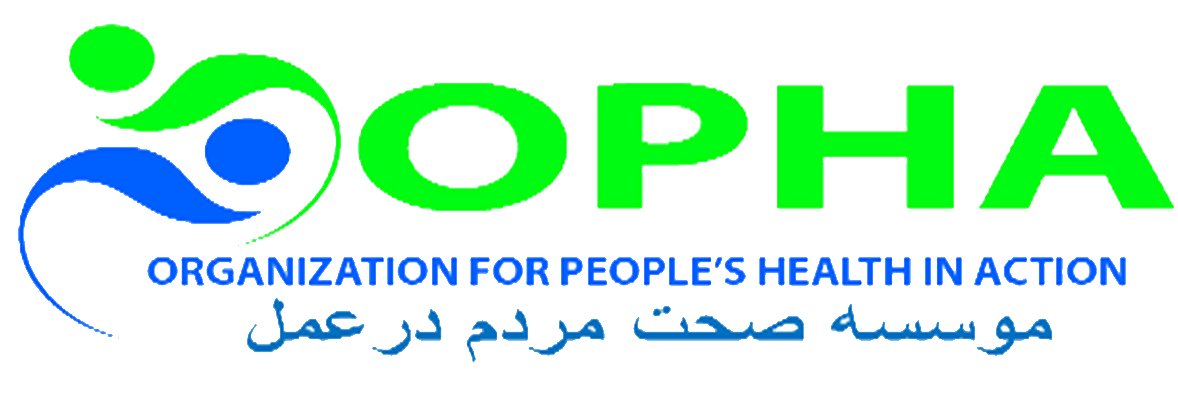
BPHS Project

OPHA is currently delivering BPHS and EPHS services under Sehatmandi project through a partnership with CAF in Logar province. The summary of the services we provide to the local community through this project are:
- Community-Based Health Care (CBHC) services: OPHA believes that community involvement and participation are important elements to bring sustainable changes in the society, thus leading to improvement in the health conditions and overall social and cultural wellbeing of the society. OPHA through its EC/BCC activities and programs makes sure that the concerned communities in their residential areas possess the required knowledge about the ongoing programs of CAF and MoPH . As a successful strategy, OPHA and CAF mobilize the community to be involved in specific activities and actively take part in the supervision of the services rendered by CAF/OPHA. Following this strategy CAF/OPHA has been able to keep all 47 Health facilities and 232 HPs functional in insecure areas in the Logar provinces. In the first six months of the project OPHA conducted the following activities at the community level.
- Conducting refresher training for a total of 434 CHWs.
- Conducting 3 days refresher training for 32 CHSs.
- Conducting initial CHW training for 31 new female CHWs.
- Updating of CHW database.
- Provision of ID cards for all CHWs.
- Conducting of supervisions (Once per month by CHS and 7 HPs per month by CBHC officer) from HPs.
- CHWs provided required facilitation for the project supervisors for the community level HMIS data verification.
- Strong assistance of CHWs in establishing of 8 new Family Health Houses (FHH)
- Regular recording and reporting system maintained in all 232 HPs.
- Provision of EPI services: CAF/OPHA has tremendous and remarkable achievements in reducing the prevalence of vaccine-preventable diseases in Logar province. The summary of the EPI services in the first six months o the year 2019 are as follow:
- Routine EPI services including, fixed, Outreach, and mobile vaccination mechanism are in place.
- In close coordination with PMT we participate and facilitate the EPI campaigns.
- EPI Micro plan is provided for all HFs.
- The achievements of the HFs versus the vaccine target indicators are satisfying.
- IPV is in use instead of OPV in all HFs.
- P4P Target of EPI for HFs is set based on actual performance.
- EPI provincial micro plan is developed.
- EPI refresher training is conducted for all vaccinators.
- Plan for initial EPI training for newly hired female vaccinators is developed and will be implemented based on the proposed training plan.
- NSDR recording and reporting system in place and the sentinel sites are active.
- The mechanism for confirmation of outreach vaccination and the accuracy of EPI data is in place.
- Vaccine cards, recording, and reporting system for EPI are available.
- Referral mechanism from HPs to HFs for receiving EPI services is in established
- Capacity building of HFs staff: Based on the partnership agreement with CAF, OPHA responsible for building the capacity of BPHS and EPHS HFs staff based on the approved training plan by MoPH. The summary of the progress of the capacity building process is as below:
- 98% of the planned training for the first year of the project is implemented.
- A total of 1306 staff including 823 Male and 483 females are trained based on the project training plan.
- The report writing training conducted for the management staff of the Logar provincial office on 9th Nov 2019.
- Community Midwifery Education (CME) and Community Nursing Education (CHNE) Programs:
The CME and CHNE training program has been started by CAF in the previous phase of Sehatmandi project in April 2018, based on the contract of the current phase of Sehatmandi the training process of the CME and CHNE students continued and successfully completed by the 20th of October 2019. According to the division of responsibilities among partner organizations (CAF/OPHA), OPHA was responsible for the completion of the CME and CHNE program in Logar province. The summary of achievements of OPHA viruses the implementation of the above-mentioned programs are as below:
- The training process of a total Number of 24 female students for CME and 24 female students for CHNE programs are completed successfully.
- The required number of theoretical teachers (3 for each program), Clinical instructor (1 for each program), English and computer teacher (1 for each program) is maintained.
- The required books and guidelines are provided for both CME and CHNE program students.
- Clinical modules and lab skill equipment are provided for both programs.
- The curriculum and teaching program are arranged based on the academic calendar for both programs.
- Personnel files of both students and teachers are completed for both CME and CHNE programs.
- Group practical work for the students is arranged based on the academic calendar.
- Monthly program internal assessment regularly conducted by CME and CHNE coordinators.
- Action plan for addressing the weak points developed and implemented by CME and CHNE coordinators.
- Independent accreditation assessment from both CME and CHNE programs conducted by AMNEAB and its result for both CME and CHNE is good.
- The final assessment for accreditation of both CME and CHNE programs conducted by AMNEAB by the fourth week of Sep 2019.
- The graduation ceremony of CME and CHNE Programs conducted on the 4th of Nov 2019 in Logar Province.
- The deployment plan for both CME and CHNE students after graduation is developed and is implemented.